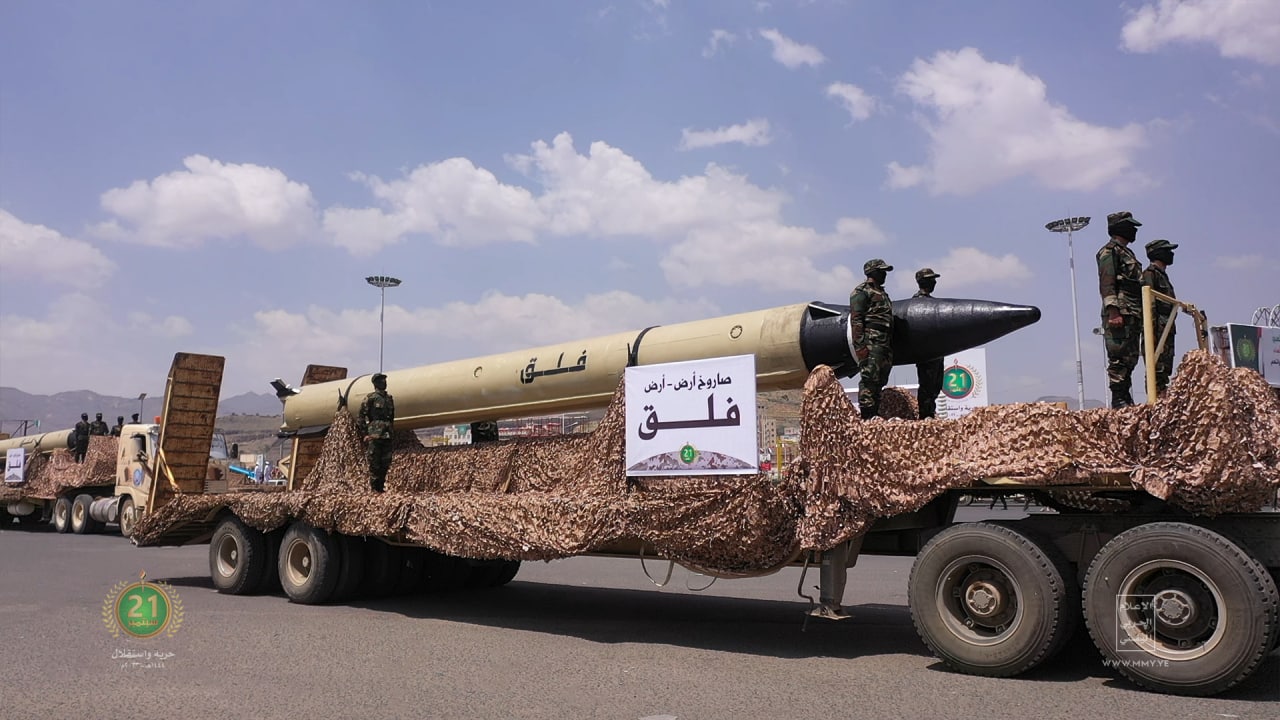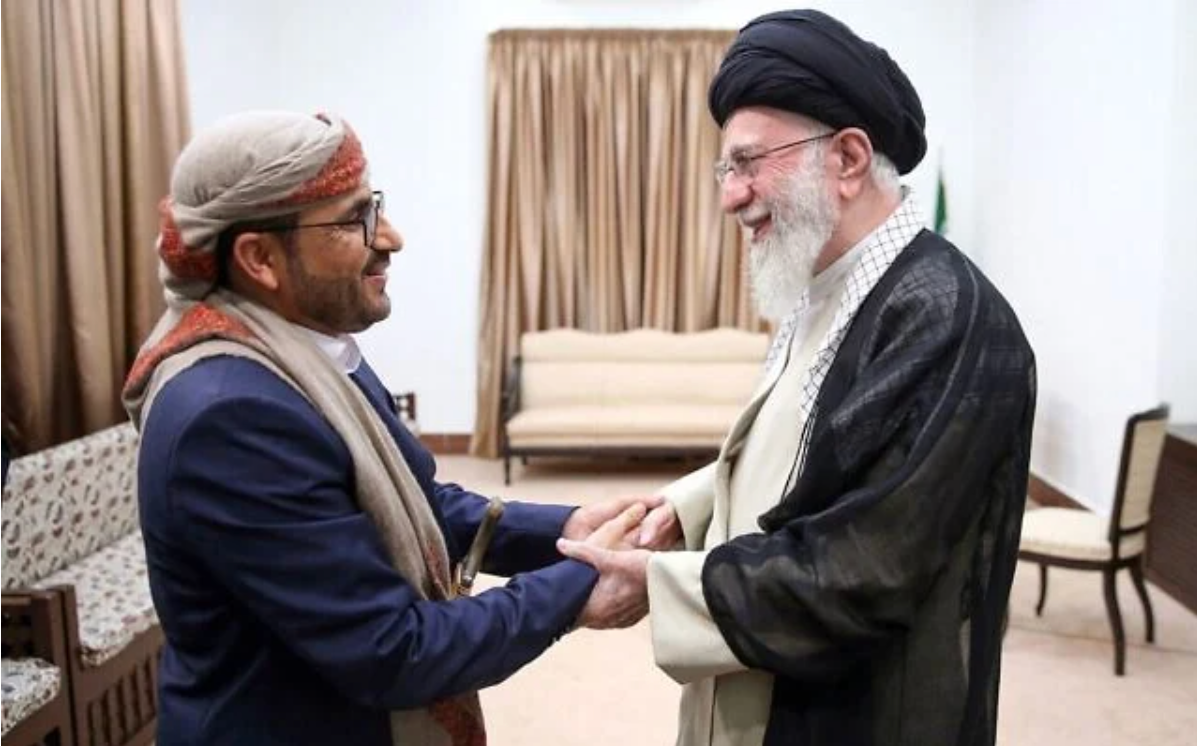Trump Warns Iran: What is Tehran’s Military Presence in Yemen?

Iran has ordered military personnel to leave Yemen.
Iran's military presence in Yemen is increasingly under pressure as the United States ramps up its threats against the Tehran-backed Houthi group, which has relied on Iranian support—both military and logistical, including advisors—over the past decade.
The intensifying U.S. military campaign against the Houthis has raised questions about how much these attacks, the largest since Trump took office in January 2025, are affecting Iran’s influence in Yemen.
Since March 15, 2025, the U.S. military has been carrying out widespread “operations” against the Houthis. President Donald Trump has repeatedly threatened to “completely wipe out” the group.
Meanwhile, the Houthis have responded by stating that the U.S. offensive “will not deter them from supporting Gaza,” continuing to launch attacks on Israeli targets and linked ships in the Red Sea, in retaliation for the ongoing Israeli Occupation’s genocide against Gaza since March 18.

Houthi Support
Since 2014, Iranian influence in Yemen has been pivotal in sustaining the Houthis' resilience, a role that has come into sharper focus as the conflict has escalated.
On September 21, 2014, the Houthis staged a coup against Yemen’s internationally recognized government, seizing control of Sana’a and other cities. This plunged the country into a violent conflict, especially after a Saudi-led Arab coalition intervened in 2015 to back the government.
The Houthis, formally known as Ansar Allah, emerged as a political and military movement in the 1980s. By 2014, Iran had become a key regional player, backing the Houthis and treating them as a strategic proxy.
The relationship took a new turn in October 2023, when Iran’s military influence began to show through the Houthis’ direct actions in response to Israeli Occupation’s war on Gaza. The Houthis targeted Israeli-linked ships in the Red Sea and launched missile and drone attacks on “Israel,” pressuring “the country” to end its offensive on Gaza.
This involvement drew a U.S. military response, initially from President Joe Biden’s administration in December 2023, under ‘Operation Prosperity Guardian,’ and later, a more sustained campaign under President Donald Trump since March 15, 2025.
On April 4, 2025, Moammar al-Eryani, Minister of Information for the Republic of Yemen Government (ROYG), confirmed the deaths of up to 70 Houthi fighters in U.S. strikes, including high-ranking field commanders and members of Iran’s Revolutionary Guards. The strikes targeted a Houthi position in Yemen’s Hodeidah province, a known planning hub for attacks on commercial vessels and oil tankers in the Red Sea and Bab el-Mandeb Strait.
The deaths of Iranian forces in these strikes brought renewed attention to Tehran’s role in Yemen. Trump has made it clear that Iran would be held responsible for any Houthi actions against shipping in the Red Sea, stating that Washington would treat every Houthi bullet as a bullet fired by Iran, with potentially severe consequences.
Amidst the escalating conflict, a senior Iranian official told The Telegraph that Iran has ordered military personnel to leave Yemen, abandoning its Houthi allies as the U.S. escalates an air strike campaign against “the rebel group.”
The move aimed to avoid direct confrontation with the U.S. if an “Iranian soldier was killed.”
The official said Iran was also scaling back its strategy of supporting a network of regional proxies to focus on the direct threats from the U.S. instead.
Tehran’s primary concern, the source said, was “Trump and how to deal with him”.
“Every meeting is dominated by discussions about him, and none of the regional groups we previously supported are being discussed,” the source added.
Tehran’s assessment suggests the Houthis are nearing the end of their struggle. Iran now views continued support for the group as illogical, particularly given their diminishing power and their role in a broader network of Iranian-backed groups, including Hezbollah and the Syrian government of Bashar al-Assad.

‘Military Advice’
Recently, President Donald Trump has threatened direct military action against Iran, even as he seeks to revive nuclear negotiations, following nearly seven years since his administration's withdrawal from the nuclear deal in 2017.
Trump said he had offered Ali Khamenei a chance to negotiate or risk his nuclear program being targeted.
“I've written them a letter, saying I hope you're going to negotiate because if we have to go in militarily it's going to be a terrible thing for them,” Trump told Fox Business on March 7, 2025.
“There are two ways Iran can be handled - militarily, or you make a deal,” Trump said. “I would prefer to make a deal, because I am not looking to hurt Iran.”
The West believes that any U.S. military confrontation with Iran, if nuclear talks fail, will likely play out in Yemen.
Western nations claim that Iran has transferred advanced weaponry and missile technology to the Houthis, including ballistic missiles, anti-ship cruise missiles, and drones. Key members of Iran's Revolutionary Guard have played crucial roles in training Houthi fighters and offering military advice.
The U.S. Central Command often reports intercepting advanced Iranian weapons shipments near Yemen’s coast, en route to the Houthis. These shipments reportedly contain components for medium-range ballistic missiles, explosives, parts for underwater and surface drones, military communications equipment, and anti-tank guided missile launchers.
Iran has been smuggling electronic units to the Houthis. These units are initially disguised as household electronics, only to be assembled into military devices in secret labs in areas like Sanaa.
A 2017 report by the Conflict Armament Research (CAR), backed by images, revealed that the Qasef-1 drone, claimed by the Houthis to be of local origin, closely matches Iran’s Ababil drone.

Soleimani of Sana’a!
Iran International, citing U.S. sources, said an Iranian Revolutionary Guard official in Yemen, Abdolreza Shahlaei, is at the top of Washington's target list.
Shahlaei, one of the most enigmatic figures within the Revolutionary Guard, has a $15 million bounty on his head, the highest reward the U.S. has offered for any Revolutionary Guard leader. This highlights the strategic importance of eliminating him in Washington's view.
Another report revealed that President Donald Trump had previously authorized an operation to target Shahlaei in Yemen. His vehicle was struck in the attack, but he survived.
General Shahlaei leads a Revolutionary Guard unit in Yemen consisting of around 500 fighters, reinforced by experts from Lebanon's Hezbollah.
He was dubbed “Soleimani of Sana’a,” referencing the late Qasem Soleimani, former commander of the Quds Force, who was killed by the U.S. in January 2020.

Abaad Studies and Research revealed in January 2020 that Qasem Soleimani's final operations in Yemen before his death included overseeing the delivery of an air defense system to the Houthis.
Unit 190 of the Quds Force was tasked with smuggling weapons to the Houthi group, according to the center.
Iranian Revolutionary Guard and Hezbollah commanders were actively present on the ground in Yemen, guiding and overseeing Houthi attacks on shipping in the Red Sea, four regional and two Iranian sources told Reuters on January 20, 2024.
These commanders provide “know-how, data, and intelligence support to determine which of the dozens of vessels traveling through the Red Sea each day are destined for Israel and constitute Houthi targets,” all the sources said.
An Iranian insider told the news agency that Iranian commanders had travelled to Yemen as well and set up a command center in the capital Sana'a for the Red Sea attacks which is being run by the senior IRGC commander responsible for Yemen.
According to two former Yemeni army sources, there is a clear presence of IRGC and Hezbollah members in Yemen. They are responsible for supervising military operations, training, and reassembling missiles smuggled into Yemen as separate pieces.
Retired General Kenneth McKenzie, the former head of U.S. Central Command, stated during a forum on the Red Sea crisis in January 2024 that Iran effectively has the capability to execute what he calls “its covert operations,” thanks to the substantial presence of Iranian forces, particularly from the Quds Force, on the ground in Yemen.
Sources
- Iran abandons Houthis under relentless US bombardment
- A study center reveals Qassem Soleimani's last missions in Yemen. [Arabic]
- Iran criticises 'bullying countries' after Trump letter for nuclear talks
- Iran’s Support of the Houthis: What to Know
- From Tehran to Saada: Iran defies the world and supplies weapons to the Houthis [Arabic]
- A British research center is investigating the possibility of smuggling sensitive drone development technologies to the Houthi group. [Arabic]
- Iranian and Hezbollah commanders help direct Houthi attacks in Yemen
- Western intelligence tracking Iran's movements in Red Sea
- Yemeni Information Minister: Members of the Iranian Revolutionary Guard were killed in U.S. raids on the Houthis [Arabic]
- The deployment of the Iranian Revolutionary Guard in Yemen [Arabic]










